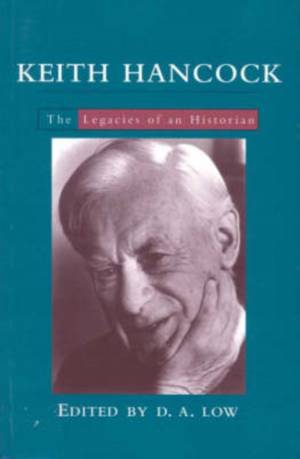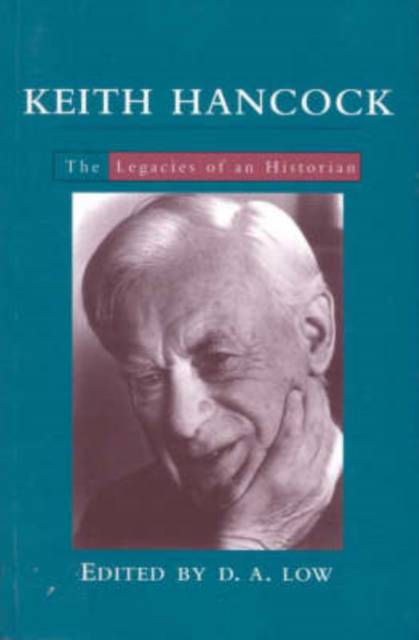
- Afhalen na 1 uur in een winkel met voorraad
- Gratis thuislevering in België vanaf € 30
- Ruim aanbod met 7 miljoen producten
- Afhalen na 1 uur in een winkel met voorraad
- Gratis thuislevering in België vanaf € 30
- Ruim aanbod met 7 miljoen producten
Zoeken
€ 55,45
+ 110 punten
Uitvoering
Omschrijving
Sir Keith Hancock KBE (1898-1984) was the most distinguished scholar in the humanities and social sciences to have been born and to have worked in Australia. He was a graduate of the University of Melbourne, a Rhodes Scholar and the first Australian Fellow of All Souls College, Oxford. He successively held History chairs at the universities of Adelaide, Birmingham, Oxford and London and at the Australian National University.
Aged 32 he published his Australia (London, 1930), still the single most striking commentary on this country, many of whose aphorisms have percolated through into numerous other writings. Aged 74 he published his last major work, Discovering Monaro: A Study of Man's Impact on the Environment (Cambridge, 1972), which was arguably the primary fillip to the study of Australian environmental history to this day.
The main chapters of this book discuss, largely in sequence, the major books that he wrote, the fields with which he dealt, and the directions these have taken since he did so. They revisit an extraordinary series of creative achievements while providing an introduction to the work of an exceptional Australian scholar.
The book will be important for anyone interested in the Humanities in Australia, and particularly for those concerned with Australian historiography. There are indications that imaginative teachers of History Honours students are already 'going back' to Hancock's writing and finding students responding positively to it.
Aged 32 he published his Australia (London, 1930), still the single most striking commentary on this country, many of whose aphorisms have percolated through into numerous other writings. Aged 74 he published his last major work, Discovering Monaro: A Study of Man's Impact on the Environment (Cambridge, 1972), which was arguably the primary fillip to the study of Australian environmental history to this day.
The main chapters of this book discuss, largely in sequence, the major books that he wrote, the fields with which he dealt, and the directions these have taken since he did so. They revisit an extraordinary series of creative achievements while providing an introduction to the work of an exceptional Australian scholar.
The book will be important for anyone interested in the Humanities in Australia, and particularly for those concerned with Australian historiography. There are indications that imaginative teachers of History Honours students are already 'going back' to Hancock's writing and finding students responding positively to it.
Specificaties
Betrokkenen
- Auteur(s):
- Uitgeverij:
Inhoud
- Aantal bladzijden:
- 320
- Taal:
- Engels
Eigenschappen
- Productcode (EAN):
- 9780522849387
- Verschijningsdatum:
- 13/05/1997
- Uitvoering:
- Paperback
- Formaat:
- Trade paperback (VS)
- Afmetingen:
- 143 mm x 217 mm
- Gewicht:
- 444 g

Alleen bij Standaard Boekhandel
+ 110 punten op je klantenkaart van Standaard Boekhandel
Beoordelingen
We publiceren alleen reviews die voldoen aan de voorwaarden voor reviews. Bekijk onze voorwaarden voor reviews.








